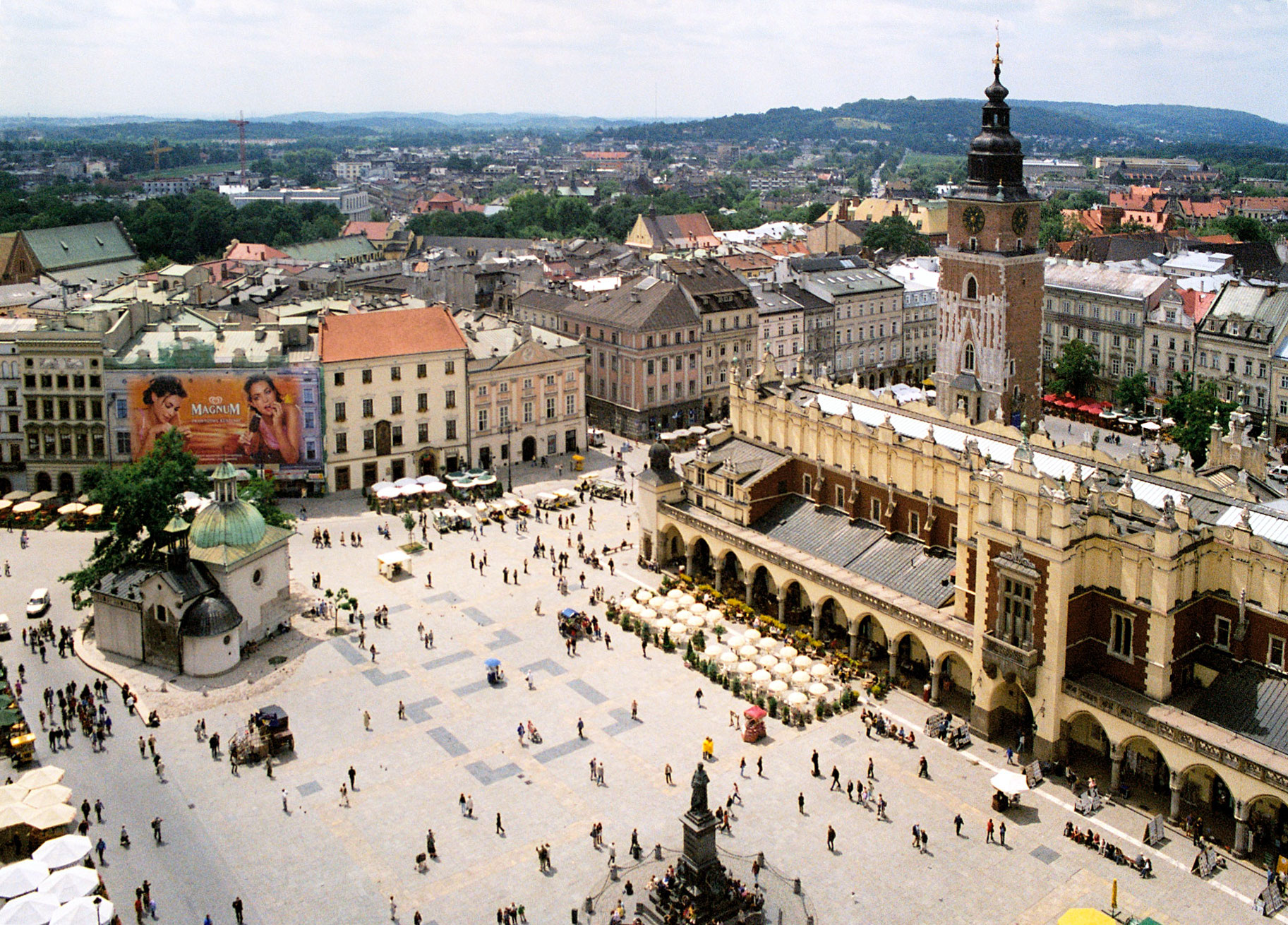 It's a tie!
It's a tie!You've selected Odessa (Ukraine, not Texas) and Krakow as the two cities you'd most like to visit on our tour. I would chalk this up as a semi-surprising outcome, given Budapest's billing as the "New Prague," had I not circulated this blog with the Ukrainian and Polish groups on JewishGen. Which may have distorted the vote slightly.
Either way, The Stewart Bike Trip shudders in the face of a murky outcome, so we're holding a runoff between Odessa and Krakow. Vote early and often - the options are listed in the right column.
To help you in this critical decision, I've included the funnest facts I could find from each city's Wikipedia article:

First up: Odessa, birthplace of my great-grandmother, Eva Schwartz:
According to one of the stories, when someone suggested Odessos as a name for the new Russian port, Catherine II said that all names in the South of the Empire were already 'masculine,' and didn't want yet another one, so she decided to change it to more 'feminine' Odessa. This anecdote is highly dubious, because there were at least two cities (Eupatoria and Theodosia) whose names sound 'feminine' for a Russian; besides, the Czarina was not a native Russian speaker, and finally, all cities are feminine in Greek (as well as in Latin). Another legend derives the name 'Odessa' from the word-play: in French (which was then the language spoken at the Russian court), 'plenty of water' is assez d'eau; if said backwards, it sounds similar to that of the Greek colony's name (and water-related pun makes perfect sense, because Odessa, though situated next to the huge body of water, has limited fresh water supply). Regardless, a link with the name of the ancient Greek colony persists, so there might be some truth in the oral tradition.
 Option 2: Krakow, one of the oldest and largest cities in Poland, and one of the few to emerge relatively unscathed from the wrath of WWII:
Option 2: Krakow, one of the oldest and largest cities in Poland, and one of the few to emerge relatively unscathed from the wrath of WWII:Kraków remained relatively undamaged at the end of World War II.[43] Allegedly Germans planned to destroy it with massive amounts of explosives,[44][45] but according to the most popular of several versions of the story,[46] Soviet Marshal Ivan Konev, after being informed by the Polish patriots of the German plan,[45][47] tried to preserve Kraków from destruction by ordering a lightning attack on the city.[48] The credibility of these accounts has been recently questioned by Polish historian Andrzej Chwalba, who in his recent works finds no evidence for any German plan of massive destruction and portrays Konev's strategy as ordinary, only accidentally resulting in reduced damage to Kraków, a fact that was later exaggerated into the myth of "Konev, savior of Kraków" by Soviet propaganda.Disclaimer: The Stewart Bike Trip is clearly biased in favor of Odessa on this one, as 1. it was it home to a wonderful woman who is in part responsible for our existence and 2. when we arrive in Odessa, it means we won't have to ride our bikes for at least a couple of days. Yet - in stark contrast to the history of both these nations - we value fair and free elections, so please, vote with a clear conscience and in the full spirit of democracy.


No comments:
Post a Comment